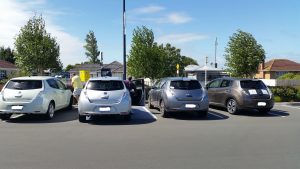Prof. Marcus du Sautoy said "Mathematics can often appear arcane, esoteric, unworldly and irrelevant." In that New Statesman article Prof. du Sautoy then went on to counter that and outline his views on relevance and importance of mathematics. (Aside - [If you're into mathematics/physics/Hitchhikers Guide to the Galaxy - you may also enjoy Prof. du Sautoy's thoughts on why 42 is in the fact the "Answer to the Ultimate Question of Life, the Universe, and Everything" published here.)
Like Prof. du Sautoy I believe mathematics offers us tremendous insight into the way the world works. In the work we do in the Department of Engineering Science we describe the process of using mathematics to understand the world as "mathematical modelling". So what is mathematical modelling? Wikipedia gives a definition of "A mathematical model is a description of a system using mathematical concepts and language." While I agree that's a valid definition - if we met at a cocktail party and I told you that was what I do, you may be politely looking for ways to break off the conversation (depending on your level of interest in mathematics).

The word "language" in the Wikipedia definition is however very important to me. When I was at school I loved learning languages (and still do). I studied French to 7th form (now called Year 13) and Latin to Year 12. I frequently comment that for me mathematics is in many ways just another language. The mathematical modelling process involves a translation of a problem that arises from a community, industry, science, government etc. into a set of mathematical statements that capture the relevant details.
Once translated into mathematical language do I end up with a set of mathematical equations that I can solve by hand (on paper)? Not usually! I sometimes say in jest that while I am a reasonable mathematician, I specalise in writing down equations I can't solve. This means the modelling process typically includes a phase of translating the mathematics involved into a form that can be solved by a computer. All going to plan the computer-based version of the model then becomes a "crystal ball" where the modeller can ask "what if?" questions to explore uncertainty (e.g. in a traffic flow model what happens if 50% more cars per hour travel on a certain road due to a special event in the area?) To make meaningful predictions of the future behaviour of a system the model must be validated against previous observations of that system (e.g. if I want to predict future flow rates and temperatures in a geothermal well, my model should ideally be able to retroactively recover previous flow behaviour).
Finally modellers need to be able to address the "Why?" question ... why was the model constructed? Does it provide a robust answer to that question? Through the modelling process having an appreciation of the topic being addressed is very helpful. Within the Engineering Science degree we allow students to build their understanding of various domains where modelling may be applied (from financial markets to environmental engineering) by having the flexibility to include electives from outside the Department throughout the degree. We hope that makes them better mathematical modellers!



